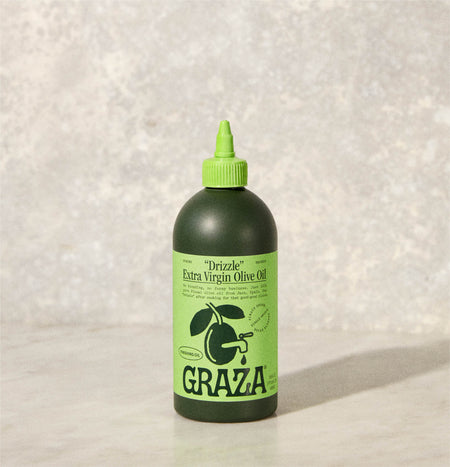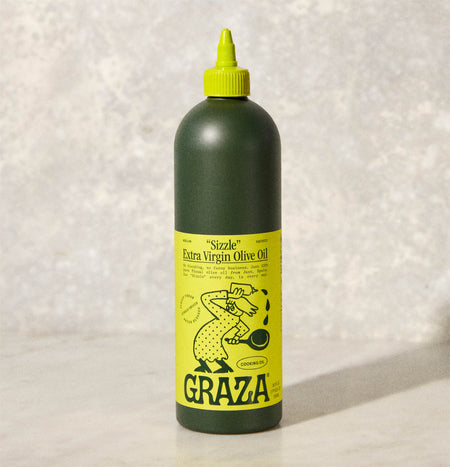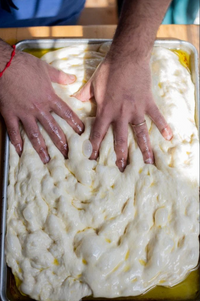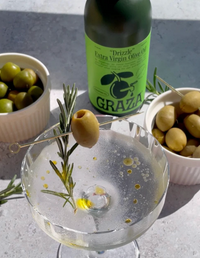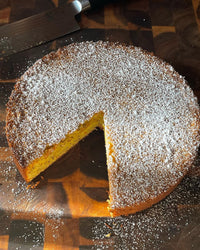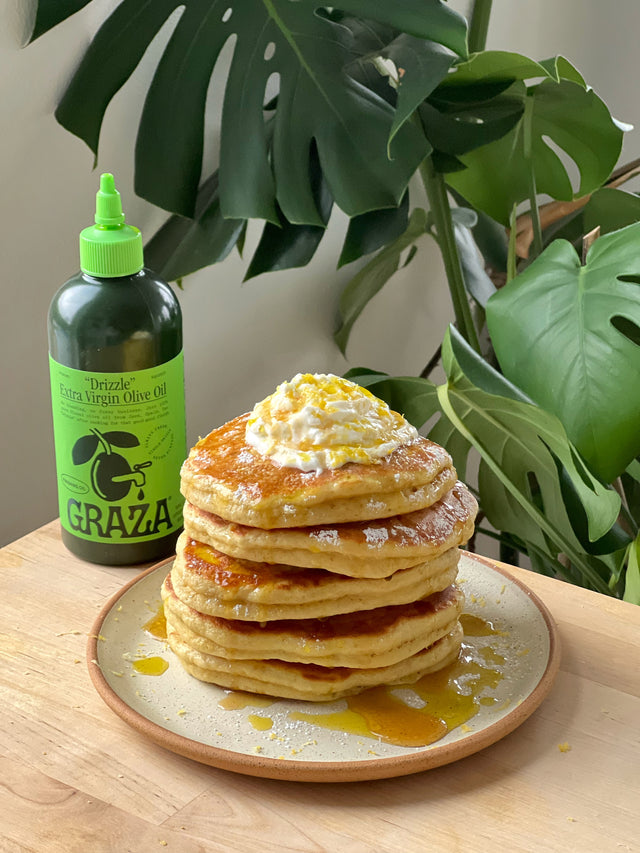
Olive Oil vs Butter: Your Questions Answered
Whether you're making a roast, serving up a steak, or baking a batch of cookies; there's one question you may have asked yourself––olive oil or butter? Both have die-hard fans, unique flavors, and nutritional perks, but they're also different in some key ways that apply to different use cases.
Let's settle this sizzling debate with all the buttery and oily details!
For Taste
This one's personal. Butter's rich, creamy taste makes it a no-brainer for anything you want to make silky, decadent, or downright comforting. Butter on toast? It's a love letter to your taste buds. A flakey croissant? Butter is responsible for all those delightful pastry layers.
But don't count olive oil out of the rich decadent taste test. Olive oil's delightfully fruit, peppery flavor profiles carry over into the dishes and recipes you are cheffing up. These flavors add a new depth and highlight other ingredients in interesting ways. While you may be thinking olive oil will overwhelm a dish, not to fret, it complements rather than overpowers.
For Health
Butter has an interesting history with the health world. Different trends, experts, and voices in the space have long debated its place in a daily diet. Butter is rich in saturated fats and vitamins A, D, and E. It also contains cholesterol, that when eaten in excess, can increase "bad" LDL cholesterol. So the key word to keep in mind when using butter: moderation.
Olive oil has a bit of one up on other cooking fats in terms of health benefits. This stems from the polyphenols and antioxidants found in olives. Extra-virgin olive oil (the gold standard) is packed with monounsaturated fats, which are linked to lower LDL cholesterol and higher HDL cholesterol. It is also loaded with antioxidants, including vitamin E, and has anti-inflammatory properties.
For Heat
In cooking, not all fats are created equal. Different oils and fats vary in smoke points—that temperature where they start smoking and breaking down.
Butter's smoke point is pretty low, around 302F. This makes butter great for lower-temp/no heat cooking and recipes, like sauces (think Hollandaise) and frosting (we love adding Drizzle to buttercream frosting for the prettiest color and amazing taste!!).
Olive oil has a higher smoke point of 420F. It's excellent for roasting, baking, light frying, sautéing, etc. So for that good ol' high-heat sear, olive oil is more heat resilient than butter.
The Bottom Line
Truthfully, we think no kitchen is complete without a good quality EVOO + and a rich decadent butter. They both have a place in your cooking arsenal. It's just important to know when to use them and how to make them work for your recipes. Don't count butter out of the savory, roasting game and try incorporating a little EVOO in your next sweet treat recipe for a new flavor highlight (get the lowdown on EVOO in baking here!).
So our final answer: definitely use both. Blend butter with a little olive oil in recipes to get a balance of flavor and health. You’ll enjoy the best of both worlds: the taste of butter with a boost of olive oil’s heart-healthy fats. It’s the culinary equivalent of having your cake and eating it too—only this time, with a healthier twist. In the battle of olive oil vs. butter, it turns out you really can have it all.

